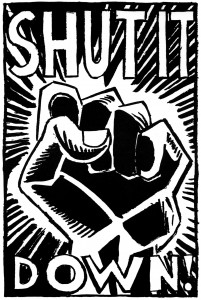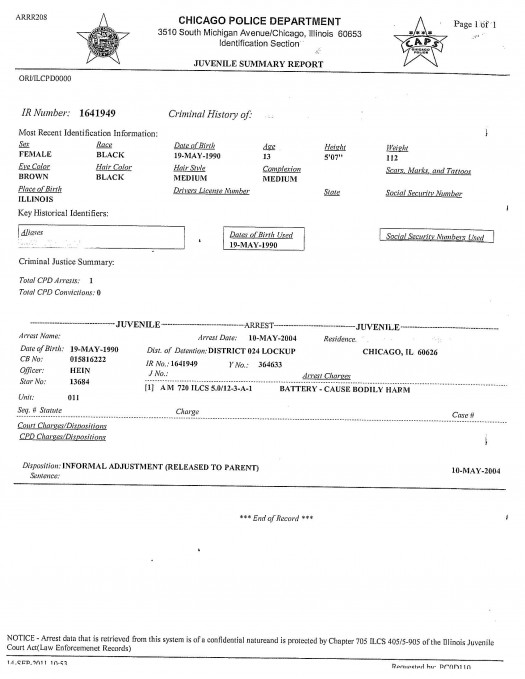Closing Youth Prisons in Illinois: IYC-Murphysboro

If you know that incarceration makes youth worse…
If you know that youth incarceration is ineffective, costly and counterproductive…
If you know that there is a better way to address the needs of youth in trouble with the law…
Then now is the time to WAKE UP and SHARE WHAT YOU KNOW TO BE TRUE.
On September 8th, Governor Pat Quinn announced that he would recommend closing IYC-Murphysboro this fiscal year. This will save the state $3.1 million in just FY12. This is a good start and we believe that many more youth prisons can and should be closed too. For specific information about IYC-Murphysboro, click here.
We have the opportunity in Illinois to mobilize to educate the public and push our legislators to close youth prisons. Betsy Clarke, director of the Juvenile Justice Initiative, put it best in a recent column:
Illinois currently runs eight separate far-flung juvenile facilities to house an average of less than 1,200 youth. These eight facilities are costly. The average annual cost per bed has rapidly risen from $70,915 five years ago to an estimate of more than $90,000 this year. The per bed cost at the Murphysboro youth prison, which the governor plans to close, is far above average and climbed to $142,342 per bed in FY10. Operation of each facility entails significant administrative costs as does collective oversight and management of the eight separate facilities.
If each of the eight facilities ran quality programming with successful results, there might be justification for continuing their operation. The facts, however, are dismally opposite. Reports document a juvenile prison system that is ineffective, with over half the youth returning to juvenile prisons within three years. Most facilities struggle to maintain minimal educational programming, let alone adequate mental health treatment, recreation or vocational classes.
According to an analysis of state records by the Juvenile Justice Initiative the average daily population for youth prisons in the state was 1,113 in fiscal year 2011, down from 1,603 in fiscal year 2005 and 1,192 in fiscal year 2011. The same analysis estimates operation costs for the facilities as $92,257 per bed for fiscal year 2011.
This is where we are in Illinois. On both humanitarian and fiscal grounds, the status quo is unsustainable. Just today, I read that the forces of the opposition are mobilizing to resist closing IYC-Murphysboro. I am extremely sympathetic to those who would lose their jobs with the closing of this facility. However, I agree strongly with Betsy Clarke who is quoted as saying: “Funding for juvenile justice is a limited amount of money, and we want to use it in the best way possible. Your jobs should not be built on the back of human misery. That should not be our job development plan.”
Here’s what you can do to add your voice in support of the Governor’s decision to close IYC-Murphysboro if you live in Illinois:
1. Sign this Change.org Petition telling Governor Pat Quinn to stand firm in closing Murphysboro Youth Prison.
2. Call Governor Quinn’s office and let him know that you support his decision to close IYC-Murphysboro. Let him also know that Illinois can afford to close even more youth prisons and that you would support that too. Call the Governor at 217-782-0244 or 312-814-2121. Tell all of your friends and family to call too. Locking young people up does not make us safer and in fact make us all less safe.
3. You can also write letters to the Governor. If you work with youth, have them write letters to the Governor telling him that they support his decision:
Office of the Governor
207 State House
Springfield, IL 62706
or
Office of the Governor
James R. Thompson Center
100 W. Randolph, 16-100
Chicago, IL 60601
4. If you live in Illinois, attend a Teach-In on Closing Illinois Youth Prisons scheduled for October 29th from 1:30 to 4:30 p.m.
5. Visit the new "Closing Illinois Youth Prisons" which includes resources, information, and ways to take action.









